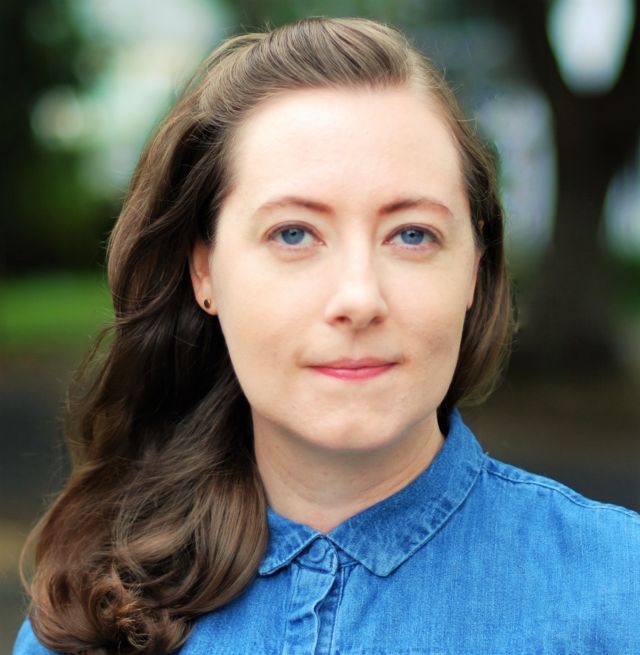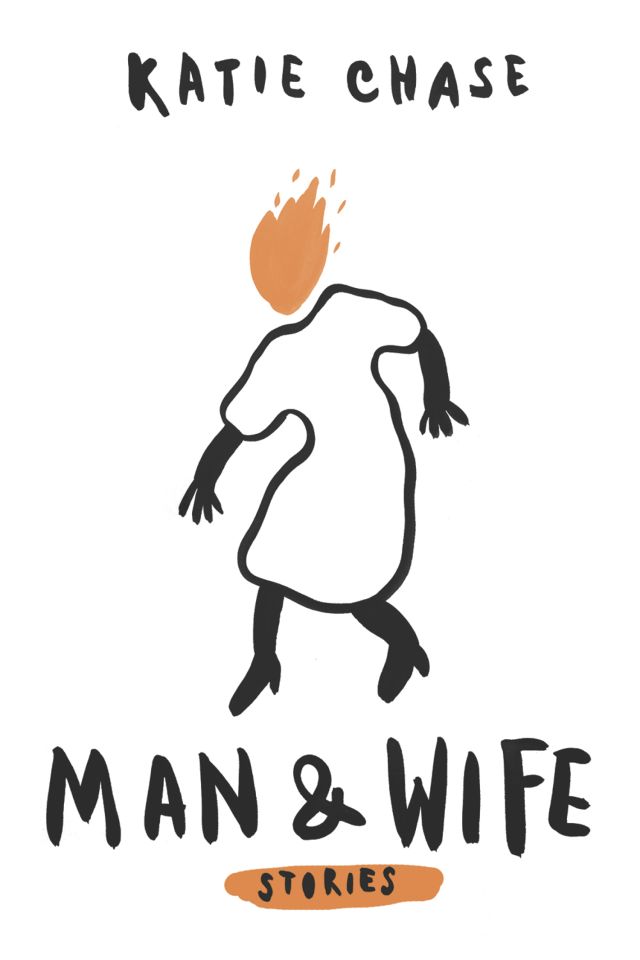Once Upon a Time: Katie Chase's Short Stories Have No Happily Ever After

"Coming aslant at something, or heightening something that I already see and just making it bigger, that wakes me up," says Katie Chase.
Image: Calvin Eib
Katie Chase writes dark, considered stories set in a reality just like ours—only subtly, tellingly skewed. Among the eight stories in her debut collection, Man &Wife, there’s one set in a refugee camp for victims of the housing crisis and another in a world of child brides and arranged marriages that otherwise smacks of American suburbia. Take this opening sentence: “The last time the city burned, my brother didn’t stay for cake.” Want to know why the city burned every year on the same date? Why the old maid sold the house? Why all the men in the town are missing? Read Man & Wife and come away uncomfortable and energized all at once.
We caught up with Chase to find out about Portland’s writing scene, where stories come from, and her fear of ultimate freedom.
Your stories often have settings that seem familiar, and recognizable—yet dramatically different from our own. Can you tell us why you are interested in such alternate realities?
I think I like these heightened situations that do come out of reality and are based in the detail of reality, and I often will think about my own experience: a lot of the stories are about adolescent girls, girls who are in the process of growing up, so I’ll think about myself at that age and fill in some details. But coming aslant at something, or heightening something that I already see and just making it bigger, that wakes me up—I hope it wakes the reader up—and creates some really specific constraints for the character. It’s kind of a way of just keeping myself interested.
What is it about the short story format that sits so well with you?
For me it’s more fun than writing something longer, because it distills the story down to its most basic parts. It’s a fun process for me. What I like about crafting a narrative is the creation of the world, and I’m interested in those little moments where life shifts for a character. That’s really what the short story form is suited toward. I feel like short stories are held together more with magic than the bricks of writing something chapter by chapter.
It’s also probably partially my temperament. I’m definitely a perfectionist, and a line-by-line writer. Sometimes I get impatient with the idea of following a character’s life step by step over such a long period of time, because I get distracted by new ideas. Writing stories is just more fun and allows me to explore different kinds of worlds.
Where do the stories come from?

Image: A Strange Object
Usually the first thing is a premise that contains the idea of a character and the idea of the situation. But I can’t really start writing anything until I start to hear some of the language. A first sentence will come to me so I get the voice and tone of the story, and usually it’s a first sentence that suggests a momentum, and I get the idea of where it’s going to be going. That one sentence will often suggest the whole arc of a story to me.
What brought you to Portland six years ago? Has it helped you as a writer to be in this particular city?
I was really looking for a city where a writer could have a good life, where I could work part time and still have a lot of time to write, in a city with a nice lit scene, somewhere with a tradition of supporting the arts. I also have family here. I was really looking for somewhere I can stay for a while and create a stable background for my writing.
That’s maybe not as easy as it was when you first came. . .
It is getting more difficult, and I do wonder if it’s somewhere I can stay much longer because I am very resistant to working full time.
Do you think Man & Wife expresses a particular worldview? How would you describe it?
It is hard to articulate it outside of the book—the book is the representation of [my worldview], and that’s why I write fiction and not essays. I'm definitely a feminist, and I’m sure that comes through in the writing, but I’m also interested in traditions and the traditional, and what they do provide for us, which—since the book is so dark, I’m sure sounds the opposite of what you think I would say. But it’s that push and pull of sticking to traditions and ultimate freedom. And I think ultimate freedom is a little terrifying.
Katie Chase reads at Powell's Books on Hawthorne on May 12.
